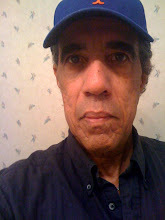Shamanism is an anthropological term referencing a range of beliefs and practices regarding communication with the spiritual world.[2] In areas where indigenous shamanism still thrives, there is a clear divide between "lay" people (who participate in and practice shamanic belief and tradition) and the professionals or specialists themselves. A lay practitioner of shamanism is not awarded any special title, as this is the norm within traditional societies. A shamanic professional, who is a highly-trained and very often spiritually selected individual, is sometimes known as a shaman[not in citation given]( /ˈʃɑːmən/ shah-mən or /ˈʃeɪmən/ shay-mən).[3]
Shamanism encompasses the belief that shamans are intermediaries or messengers between the human world and the spirit worlds. Shamans are said to treat ailments/illness by mending the soul. Alleviating traumas affecting the soul/spirit restores the physical body of the individual to balance and wholeness. The shaman also enters supernatural realms or dimensions to obtain solutions to problems afflicting the community. Shamans may visit other worlds/dimensions to bring guidance to misguided souls and to ameliorate illnesses of the human soul caused by foreign elements. The shaman operates primarily within the spiritual world, which in turn affects the human world. The restoration of balance results in the elimination of the ailment.[4]



